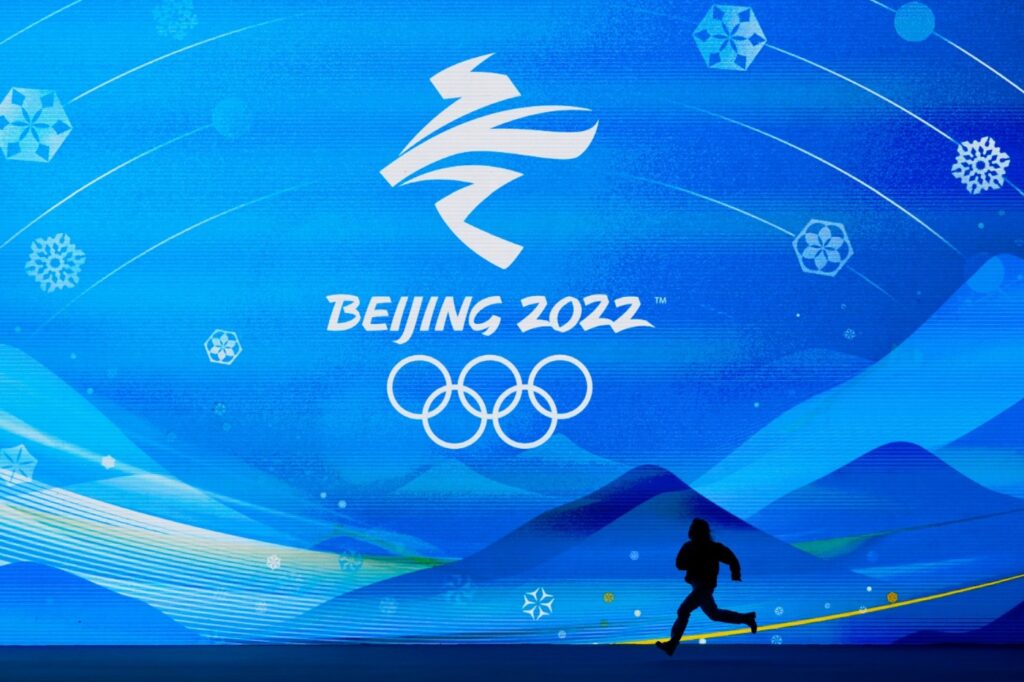
The Olympics, ostensibly and even officially not about politics, is of course almost always about politics.
From the raised black gloves of Tommie Smith and John Carlos on the medal podium in Mexico City in 1968 to the very fact that current-day Russia, due to the government-run doping program aimed at giving its athletes a leg up, is not even allowed to compete as a country in the games, the Olympics are a political animal through and through.
So while China — a country that wants to host more and more Olympic Games as other countries back off from the logistics and the expense — nominally forbade the discussion of politics during the Winter Olympics it is hosting, of course it is China that broke that rule this week in the most ostentatious fashion.
Asked at what NPR terms a “routine” press conference a simple question about whether Taiwan’s team would appear at the Olympics’ closing ceremonies, Yan Jiarong, a Beijing Olympic spokesperson, instead of answering, launched into a tirade about … politics.“What I want to say is that there is only one China in the world. Taiwan is an indivisible part of China,” a said Yan, a former Chinese representative to the United Nations.
OK — we know that’s the Chinese Communist Party’s official stance on the island that sits off the shore of the mainland, a redoubt of the losing-side Nationalists after the revolution was finally successful in 1949. But that was not the question.
Under an agreement reached in 1981, Taiwanese athletes can compete in the Olympics, but not under their country’s real name. The compromise is to call the nation Chinese Taipei. Not perfect, but it works.
The team has four athletes at the current winter games. Zero medalists so far, compared to the 13 mainland medals. But the three Taiwanese women and one man have every right to be there representing their nation, and not to be harangued by a Beijing propagandist for a government lording it over more than a billion people that remains fanatically annoyed about the independence of a country of 24 million people 100 miles away.
The Republic of China, yet another name for Taiwan, is a real nation, a mildly democratic one at that, and deserves to be recognized for what it is. And yet rank global cowardice, including that of our own country, means that only 15 other countries recognize it as such. It’s an oddball group of allies, to say the least: Guatemala, Honduras, Haiti, Paraguay, Nicaragua, Eswatini, Tuvalu, Nauru, Saint Vincent and the Grenadines, Saint Kitts and Nevis, Saint Lucia, Marshall Islands, Palau and the Vatican City.
The reason for the non-recognition of reality? Craven groveling in the face of the growing economic and military power of mainland China.
The United States did recognize the Republic of China for the three decades from the end of the revolution until 1979. As part of the complex negotiations that led to Washington, D.C.’s diplomatic recognition of mainland China itself, our government threw Taiwan under the bus and de-recognized it.
With its manifest human rights abuses, its increasingly bellicose foreign policy, its complete tolerance of the theft of intellectual property, its intolerance of dissent even in Hong Kong, the time has come to teach China a lesson. Or at least to take a stance for the rights to self-determination of a longtime ally of ours. The United States should again formally recognize the Republic of China for what it is: a member of the family of nations. We can and should be as brave as the Grenadines.
It won’t be as simple as that, of course. Another thing that happened in 1979 was that actual hostilities between the mainland and the Republic of China finally ceased. And that’s partly because, as Beijing considers Taiwan part of the broader Chinese nation, so do many hardliners in Taipei politics hold out the forlorn hope that the Nationalists will one day regain power on the mainland. Not going to happen. Taiwan should formally acknowledge that fact as well in the effort to become widely recognized and regain a seat in the United Nations.
But the U.S. has groveled long enough before the CCP’s cruelty and arrogance. Recognizing Taiwan would be a bold statement, a democratic refusal to genuflect in front of the new emperor class.
